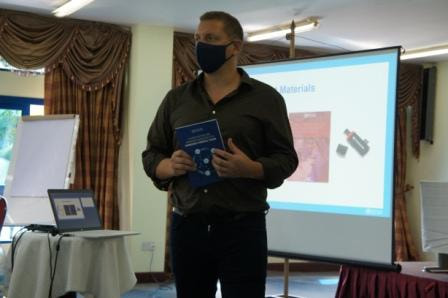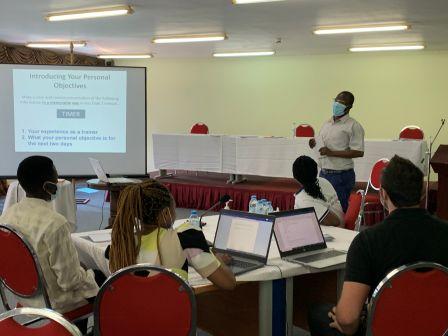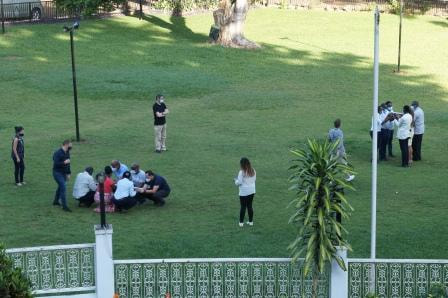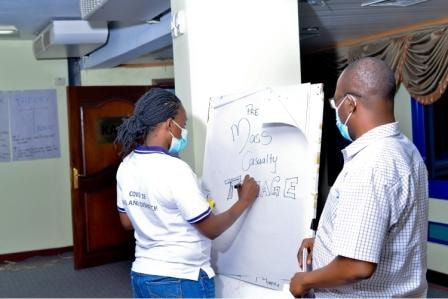Twenty-three participants from Uganda and Namibia took part in the four-day Team Member (TM) Induction Course. The course turned what participants deemed an ‘unattainable concept’ into an ‘achievable reality’, which you can read more about here.
Having successfully completed the TM Induction course, a total of twelve participants from Uganda and Namibia, remained on-site for the two-day Training of Trainers (ToT) course. This proved to be the real game changer.
Sustainable training
The objective of this particular ToT course was to train a pool of facilitators who would be available to support delivery of EMT courses both within their countries and the wider African Region.
Building on the group’s prior experiences, the ToT course provided a safe space for participants to develop and practice facilitation skills, while increasing their familiarity of the recognised EMT course packages.
“Giving participants the skills and knowledge to build their own EMT learning programme reduces the need for external training support, and empowers them to build their own EMT learning programme. In turn, this ensures a steady supply of emergency professionals trained to consistently high standards,” said Rich Parker, Founder, Training In Aid.
Turning practice into reality
Two weeks after the ToT course, the Namibian team ran their own Team Member Induction course to strengthen their national team capacity.
And this is just the start. It’s anticipated that the second African Region ToT course, which recently took in Ethiopia, will kickstart a network of trainers. The overall aim being to create national EMTs, within more African countries, that can respond rapidly and effectively, while working to agreed minimum standards and principles, to emergencies within the Region.
“It’s both a pleasure and a privilege to be closely involved in creating an international network of high quality emergency professionals. It has been even more satisfying to see how our Training of Trainer Course can empower a national team. How, by giving them the skills and knowledge, they can build their own EMT learning programme to ensure a steady supply of emergency professionals, trained to consistently high standards,” said Rich.
Discover how our range of training courses can empower your team.





 RSS Feed
RSS Feed